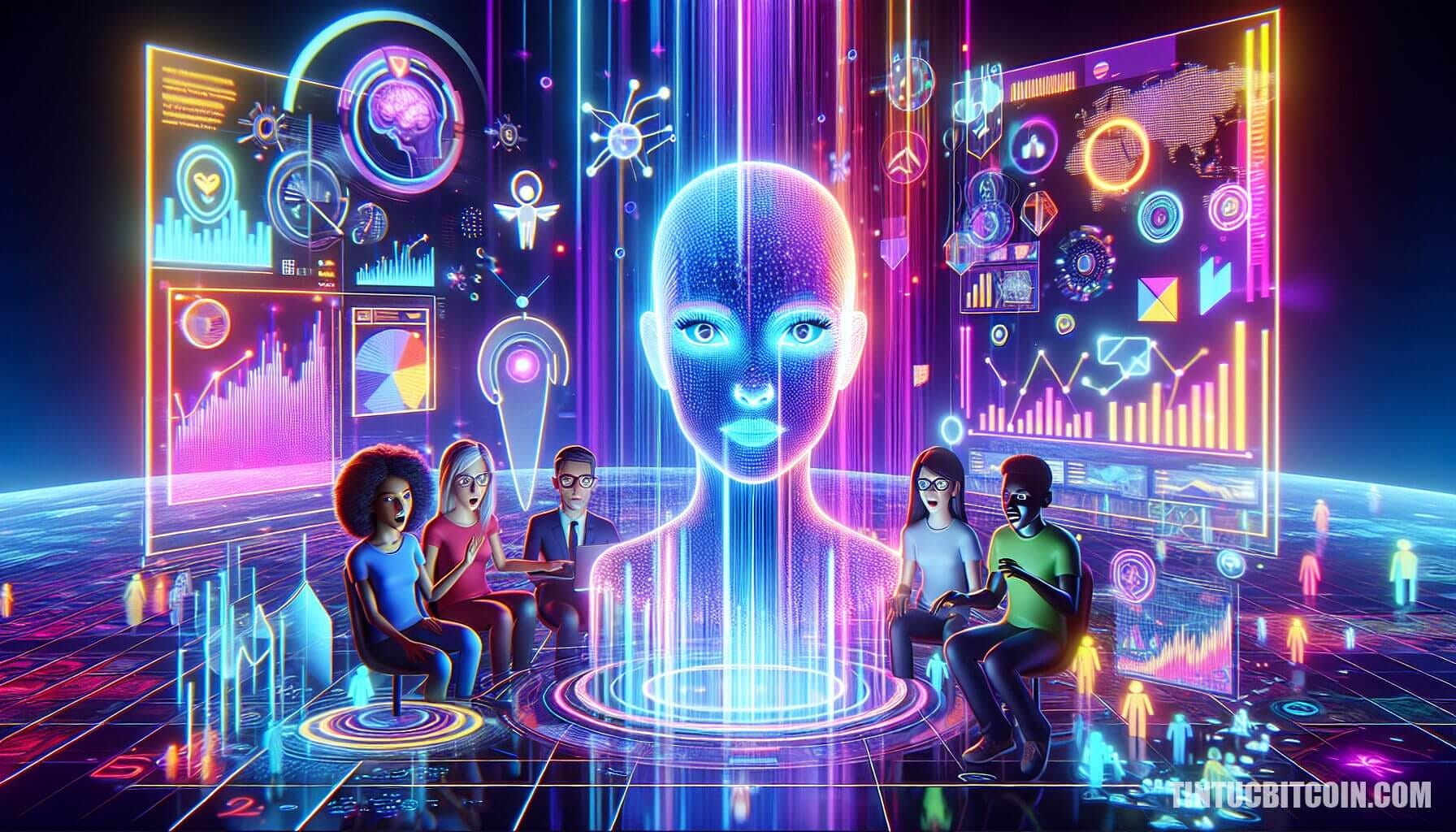
The impact of AI on the UK labor market is creating a marked decrease in the number of jobs and recruitment opportunities in many industries, particularly in the technology and finance sectors.
The strong presence of AI has not only reduced online job postings by about 31% in the last three months but has also caused many low and mid-level job positions to disappear, significantly affecting an overall economy that is slowing down and facing financial pressures.
MAIN CONTENT
The number of job postings in the UK has decreased by up to 31% in the last three months compared to the same period last year.
Jobs in the technology and finance groups are the most severely affected, with a nearly 38% reduction.
Low-level jobs that do not require high qualifications are being cut due to tax pressures and rising operating costs.
How has AI affected the workforce in the UK?
According to an analytical report by McKinsey & Co., the emergence of AI is significantly reducing the workforce in the UK, especially in high-skilled office jobs in technology and finance, which have decreased by nearly 38%, much higher than the average decline in other sectors.
This trend aligns with warnings from consulting firms and market surveys, indicating increasing caution in hiring as businesses try to reduce costs amid a slow-growing economy and high borrowing costs.
“Expectations for improved productivity in the future are prompting companies to reconsider their workforce plans, delaying some recruitment activities during this period of strong technological development.”
Tera Allas – Director of Research & Economics McKinsey UK and Ireland, 2024
Why is the number of job postings decreasing while many sectors are still growing?
The McKinsey report notes that although some sectors, such as professional services and information technology, maintain good growth rates, the number of job postings is decreasing as many job positions may be partially or entirely replaced by AI.
For example, the workforce of programmers, management consultants, and graphic designers has decreased by more than 50% in the last three years, reflecting the profound impact of AI on these professional sectors.
How are UK businesses reducing recruitment in the context of AI development?
Surveys by KPMG and the Recruitment and Employment Confederation show that June 2024 recorded the strongest decline in fixed position recruitment in 22 months in the UK, while the number of job seekers is steadily increasing.
Indeed Hiring Lab also points out the trend of reduced hiring in positions related to the development and use of AI tools, reflecting employers' doubts and concerns about costs and effectiveness in the application of AI.
“Employers are tending to reduce hiring in fields directly developing or applying AI to save costs and restructure the workforce.”
Pawel Adrjan – Director of Economic Research EMEA, Indeed Hiring Lab, 2024
How does AI impact low-level positions and new workers?
Low-level positions such as assistants, interns, and jobs that do not require a degree have decreased by nearly 30% since the emergence of ChatGPT at the end of 2022, according to Adzuna statistics.
James Neave, Head of Data Science at Adzuna, notes that the level of impact from AI makes it increasingly difficult for new workers to compete as they face economic challenges from post-COVID-19 and global inflation.
Are there any sectors growing despite the impact of AI?
In contrast to the technology sector, some fields such as real estate and education – which are less dependent on technology – have maintained and increased hiring during this same period, demonstrating stability and less pressure from AI.
Frequently Asked Questions
1. Which sectors are most affected by AI job losses in the UK? The technology and finance sectors are most affected, with a nearly 38% reduction in related jobs. 2. Why are businesses in the UK reducing hiring while some sectors are still growing? AI reduces the demand for labor in many positions, while sectors that use less technology continue to grow. 3. How does AI affect new workers and low-level jobs? These positions have decreased by nearly 30% since the end of 2022 due to AI replacement and general economic difficulties. 4. What can businesses do to adapt to the impact of AI? Invest in retraining the workforce and use AI as a supportive tool rather than a complete replacement. 5. What forecasts does McKinsey have for the future of the UK labor market? McKinsey emphasizes that expectations for higher productivity will drive companies to change their recruitment strategies in the near future.
Source: https://tintucbitcoin.com/ai-token-tuyen-dung-ai-tai-anh-giam/
Thank you for reading this article!
Like, Comment, and Follow TinTucBitcoin to stay updated on the latest news about the cryptocurrency market and not miss any important information!


